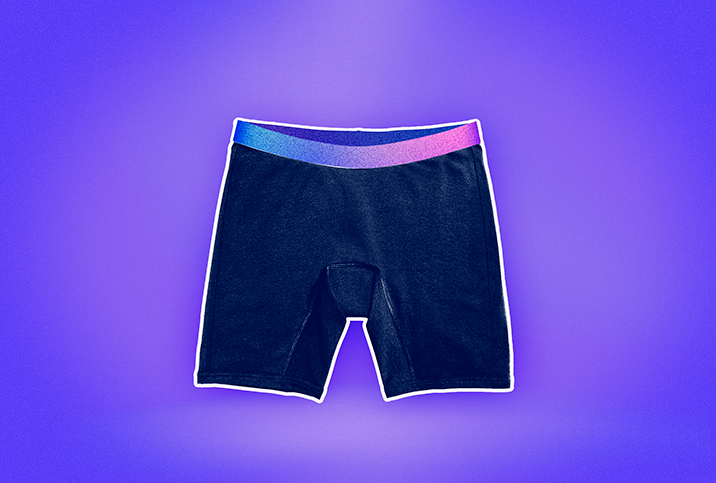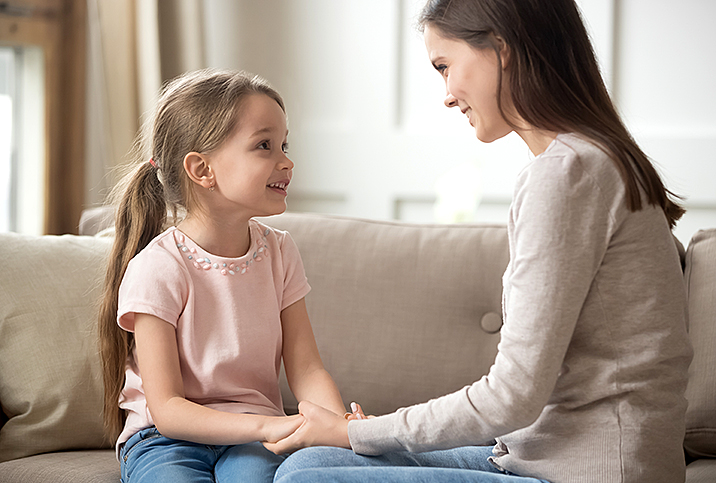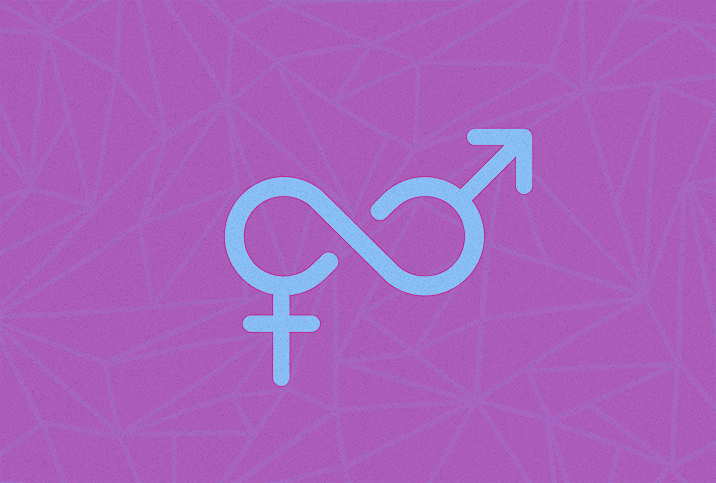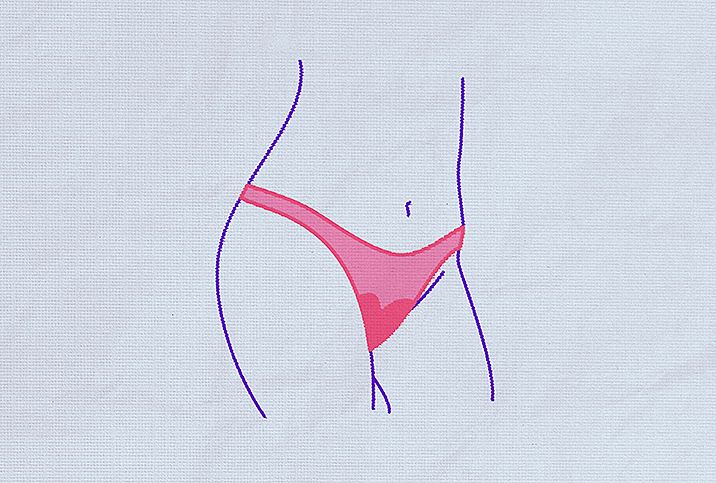Period Boxers Are More Than Just Another Menstrual Product

For many nonbinary and transgender people, our clothes give us a dose of gender euphoria—even when other people can't see them. Our style choices are for us, which makes it all the more frustrating when period products come packaged for and marketed toward women only.
Period boxers don't fix dysphoria, but for some people, they make a difference. A lot of people wear boxers and boxer briefs because they feel more authentic to their style and gender. Having to change that for a week—give or take—every month means we spend a quarter of our time bending to society's gender roles.
Assigned females at birth (AFAB) don't always have a lot of choices when it comes to periods, especially with accessibility, affordability and policy barriers in the mix. Gender-inclusive period products, such as boxers, give us choices. Period boxers represent a small step toward degendering periods and including trans and nonbinary people without having us alter our bodies or expression.
What's on the outside does matter
For transgender and nonbinary people, having a period can trigger gender dysphoria, or the feeling your assigned gender and your gender identity don't match up. Some people can stop their periods using hormone therapy, but many others face access barriers or may not want to go that route.
A 2020 study from the Palgrave Handbook of Critical Menstruation Studies indicated some nonbinary and trans people in Sweden couldn't get the "gender identity disorder" diagnosis required to acquire testosterone treatments. Plus, nonbinary and trans people often have their identities invalidated based on how others view them.
"[My period] makes me feel like I'm faking my gender because my body goes through this cycle that society labels 'female,' so I tend to dread that time of the month," said Kasey, a nonbinary 30-year-old from Massachusetts who preferred their full name not be used. "It makes it feel like…I have to pretend I'm female just because of something my body does."
Our clothing can mean the difference between getting misgendered or not. Even when no one else can see the clothes, we feel the difference, and it can show in how we carry ourselves and how we feel. Whether or not you feel dysphoria as a trans or nonbinary person, period boxers can still offer some comfort through authentic gender expression. Plus, darker fabric options can mean not having a visual reminder of that time of the month every time you go to the bathroom, and period boxers typically absorb more than disposable pads.
"Using period boxers helps me frame my period as just something that my body does, rather than a specifically 'feminine' phenomenon that makes me a 'woman,'" Kasey explained. "That neutrality is extremely important to me and achieving that frame of mind has a significantly positive effect on my mental health."
Breaking the binary
Period products aren't and can't be one size fits all. However, period boxers are one of the only products geared toward accommodating nonbinary and transgender people with periods. Even period tracker apps hyper-feminize their appearance and language.
"People who get periods don't have a choice about whether they use period products," said Rachel Kazez, a licensed clinical social worker based in Chicago and founder of All Along, which helps people find mental health services. "When there are no options that feel like a good match, this can create an experience of feeling 'I don't belong here' or 'I don't match with this.' That dissonance is uncomfortable, cannot be avoided all the time, and contributes to the insidious dysphoria that is why trans and nonbinary people have such higher rates of mental health distresses."
Something as simple as period boxers may not fix dysphoria, but they provide an option when period suppression isn't possible or wanted. Gender validation doesn't stop at using the right pronouns or names. It extends to providing the necessary resources to support validation and inclusion for trans and nonbinary people.
Accessing gender-inclusive period products
While period boxers make it possible for trans and nonbinary people with periods to feel authentic in their expression, accessing such products isn't easy. As reusable period products gain popularity, they're still significantly more expensive than disposable pads, tampons and even menstrual cups. One pair of period boxers can cost about five times as much as a whole box of pads, and not everyone can afford them.
"Periods don't stop if supplies are hard to afford," Kazez said. "Experimenting with reusable supplies is a privilege of money and time. Experimenting at all is a privilege of not having a trauma history that interferes with it."
To make truly gender-inclusive products, we need to make them accessible. A 2019 study from the Williams Institute at UCLA Law indicated that LGBTQIA+ people have a poverty rate of 21.6 percent. For trans people, it's 29.4 percent, compared to 15.7 percent for straight cisgender people, and those numbers increase for people with multiple marginalizations, including BIPOC (Black, Indigenous and people of color) and disabled people.
"I also think the fact that period products are taxed as luxury items is highly problematic," Kasey said. "Dealing with a normal function of the human body is not a 'luxury.'"
More brands are making period boxers available, but there's more work to be done. Creating space for people with periods, no matter their gender, to experience their bodies in the way that makes them feel most comfortable is crucial to improving their overall well-being.


















